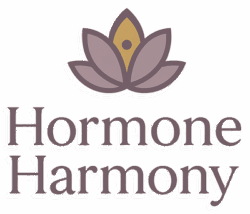Allergy Care Market Projected to Boom: Trends, Types, and Treatment Options Explored Globally
The global allergy care market is anticipated to experience significant growth, expanding from $23.1 billion in 2020 to $40.7 billion by 2027, at a Compound Annual Growth Rate (CAGR) of 6.8%. This surge is attributed to the increasing prevalence of allergies worldwide, driven by factors such as changing lifestyles, environmental pollution, and genetic predispositions.
Types of Allergies
Allergies are overreactions of the immune system to foreign substances that are typically harmless to most people. The most common types of allergies include:
- Respiratory allergies, such as hay fever and asthma
- Skin allergies, including eczema and hives
- Food allergies, such as peanut and shellfish allergies
- Insect sting allergies
Treatment Options
The treatment of allergies involves avoiding allergens, using medications, and in some cases, undergoing immunotherapy. The main types of allergy medications are:
- Antihistamines: These medications work by blocking the action of histamine, a chemical released by the body’s immune system during an allergic reaction.
- Decongestants: These medications help relieve nasal congestion associated with allergies.
- Corticosteroids: These medications reduce inflammation and swelling in the body.
- Mast Cell Stabilizers: These medications prevent the release of histamine and other chemicals from mast cells.
- Leukotriene Inhibitors: These medications block the action of leukotrienes, which are chemicals involved in the allergic response.
- Immunotherapy: Also known as allergy shots, this treatment involves regular injections of small amounts of the allergen to build up tolerance.
- Biologics: These medications target specific proteins involved in the allergic response.
Product Types
Allergy care products come in various forms, including:
- Nasal Sprays: These products are used to treat nasal congestion and other respiratory allergy symptoms.
- Oral Medications: These products include antihistamines, decongestants, and corticosteroids.
- Inhalers: These products are used to treat respiratory allergy symptoms, such as asthma.
- Injectable Biologics: These products target specific proteins involved in the allergic response.
Market Trends
The global allergy care market is driven by several trends, including:
- Increasing awareness about allergy diagnosis and treatment
- Rising prevalence of allergies worldwide
- Advances in medical technology and product development
- Growing demand for self-administered treatments
Conclusion
The global allergy care market is poised for significant growth, driven by the increasing prevalence of allergies and advances in medical technology. Understanding the different types of allergies, treatment options, and product types is essential for healthcare professionals and patients alike. As the market continues to evolve, it is likely that we will see new and innovative treatments emerge, improving the lives of millions of people worldwide.
For more information on the allergy care market, visit: https://www.openpr.com/news/4193479/allergy-care-market-is-anticipated-to-expand-from-23-1-billion



